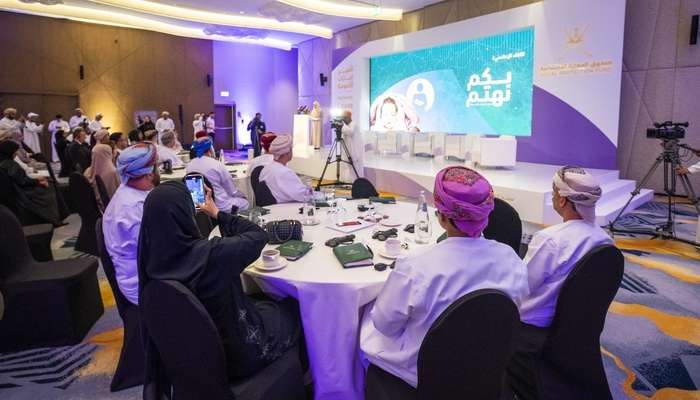
Muscat: The United Nations organisations, represented by the United Nations Children’s Fund (UNICEF), the United Nations Population Fund (UNFPA) and the World Health Organization (WHO), praised the efforts of Oman, represented by the Social Protection Fund, for launching maternity leave insurance for Omanis and non-Omanis working in the public and private sectors.
The insurance programme allows for the extension of the care leave after the maternity leave, which is an optional benefit, as the law stipulates that the mother is entitled to leave to care for the child without compensation for a period of 98 days within one year from the date of the end of the maternity leave, and this is upon the request of the insured - and the maternity leave insurance branch pays the total contributions of the insured and the workplace throughout the period of the care leave for the elderly, disability and death insurance branch and the job security insurance branch, and this leave may be distributed between the parents.
“I commend Oman for its commitment to the well-being of Omani and non-Omani workers, an achievement that places it at the forefront of the region in its inclusiveness and investments,” said Samira Chowdhury, UNICEF Representative in Oman.
The UNFPA GCC office also stressed that “reproductive health is the basis for equal economic and social participation, and prioritising reproductive health, including maternity and paternity leave, can improve productivity, reduce absenteeism, and enhance the economic empowerment of women and society.”
The Fund added that women constitute about 40% of the global workforce, and when the workplace is suitable for women, it is suitable for everyone.
Oman Vision 2040 has placed at the top of its priorities the development of the Omani human being through advanced education, a strong health system, strengthening citizenship, identity and national culture, and achieving welfare and social protection.
Dr. Jean Jabbour, WHO Representative in the Sultanate of Oman, stressed the importance of the mother’s presence in the first months of her child’s life, as this early period is crucial in shaping the child’s health, emotional and social future.
Paid maternity leave is associated with an increase in the number of regular visits to monitor the child’s growth and a rise in global levels of immunisation and ensuring timely vaccination coverage. Maternity leave also ensures that they have enough time to rest and care for the newborn and is associated with higher rates of initiation and continuation of breastfeeding.
Pace of progress
He explained that there are unprecedented opportunities to accelerate the pace of progress made in improving the health of women and children, as improving effective maternity protection supports the health of children and women.
It is worth noting that maternity leave is a social insurance programme that covers the periods of childbirth for working mothers during pregnancy and after childbirth and guarantees them enough time to rest and care for the newborn. The insurance programme also provides paternity leave to allow the father to support the family during this important stage.